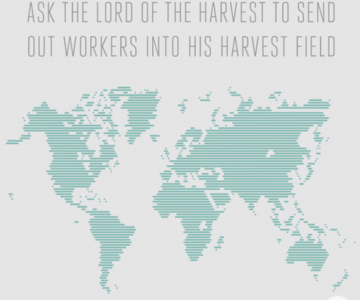We don’t have to look far to see the

incredible potential of college students.
Even though only one percent of
the world’s population are collegians,
what a powerful one percent they are.
This small sliver of humanity is, and will be, the leader of every facet of society.
Each country sends their best and brightest to the university
for education and training.
Focusing our evangelistic and multiplication efforts on this one percent is a very strategic way to expand the Kingdom of God and fulfill the Great Commission.
Almost one fourth of the world’s college students reside in North America
and they represent the most
reachable, recruitable, trainable, and sendable category of persons on the planet.
Steve Shadrach, Student Mobilization










